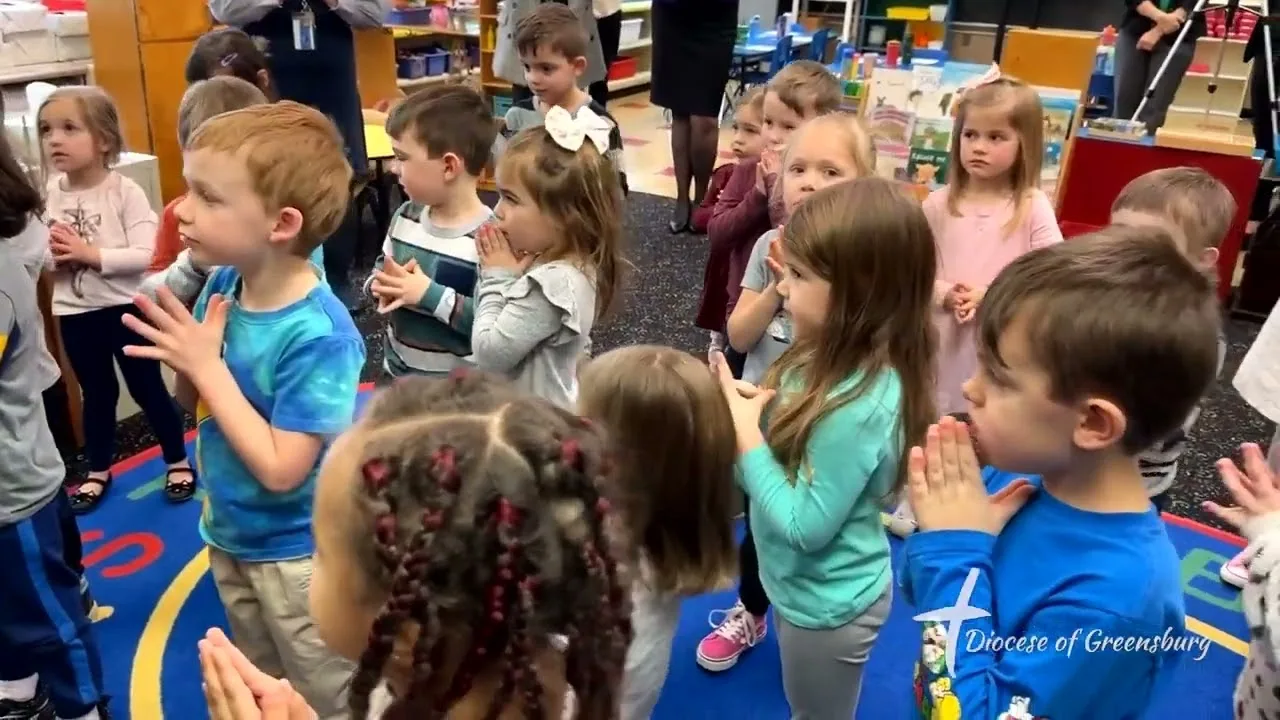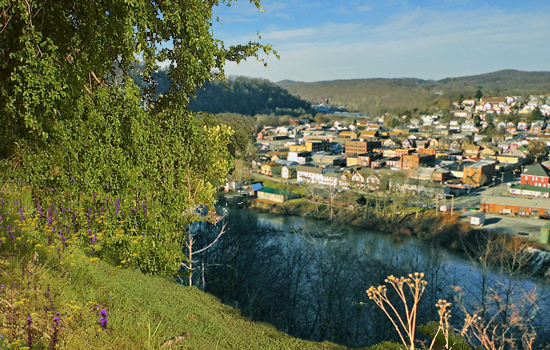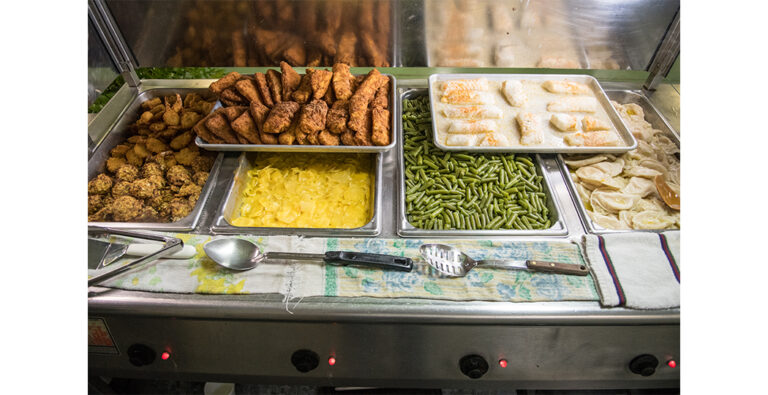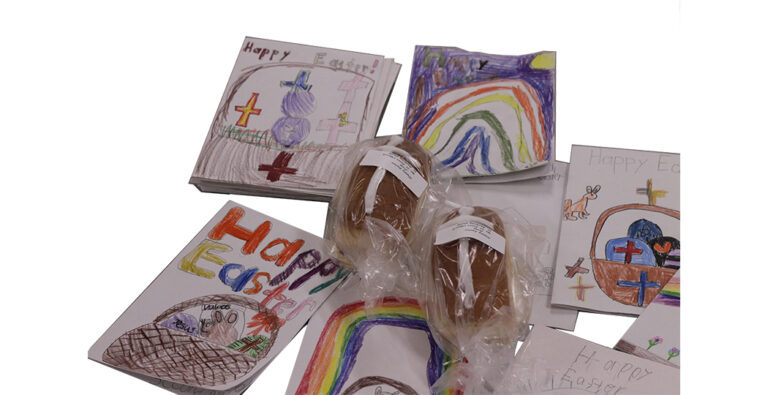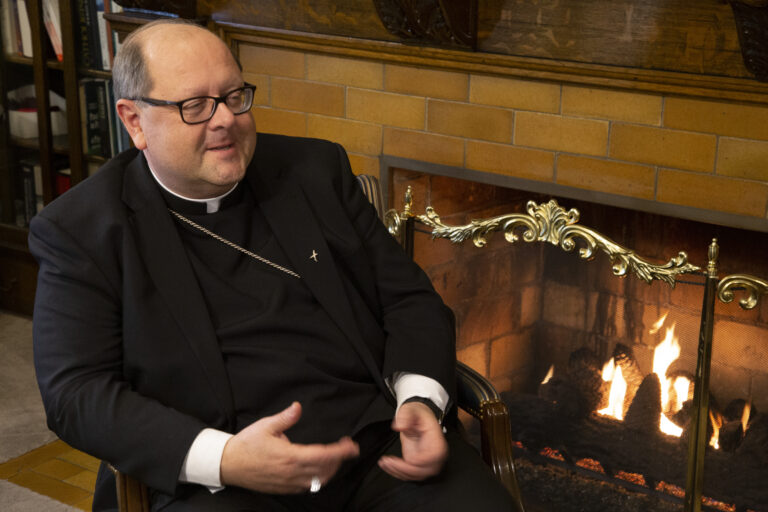
Rooted in faith
Bishop Kulick nurtured by family, parish community in Leechburg
By Jerry Zufelt, Contributing Writer
Bishop Larry J. Kulick is unabashedly proud of his southwestern Pennsylvania small-town roots and his Slovak heritage, and he says that his hometown of Leechburg and home parish, along with his Catholic high school education, were major influences on his priestly vocation.
After his appointment as the sixth Bishop of Greensburg was announced Dec. 18, he said, “My ‘yes’ was predicated on my love of the Diocese, my being here at home in western Pennsylvania.”
Bishop Kulick said it is a blessing and honor “to be able to serve the Diocese that is my home, the Diocese where I was raised, the Diocese where I first heard the call to priesthood, the Diocese where I received all of my sacraments, the Diocese where I was ordained, the Diocese I have served for the last 28 years.”
Shortly before his ordination, Bishop Kulick spent a day in Leechburg, a community of just under 2,000 people in the Alle-Kiski Valley, where his parents still live in the house in which he was raised and where his faith was constantly nurtured.
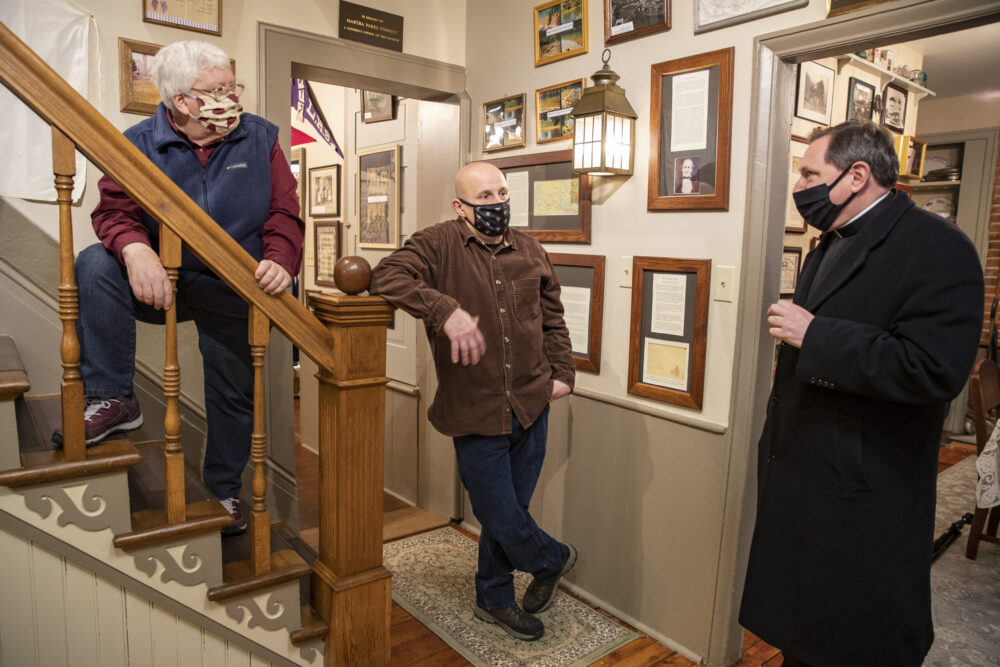
A lover of history, especially the history of southwestern Pennsylvania, he stopped at the Leechburg Area Museum and Historical Society, where he talked with board member Betty Smail in the “church room.”
Smail pointed out the worship aids for the bishop’s priestly ordination and his first Mass at the former St. Martha Parish, along with many other items from the parish and other faith communities in town.
There is unity in the diversity of the many churches in Leechburg, Bishop Kulick said. “They had respect for each other’s faith, traditions and cultures.”
He chuckled at his seventh-grade photo in the Leechburg Elementary School yearbook and the photo of his parents — Larry J. Kulick and Myrna Coleman Kulick — in the class of 1958 photo from Leechburg High, where they were classmates.
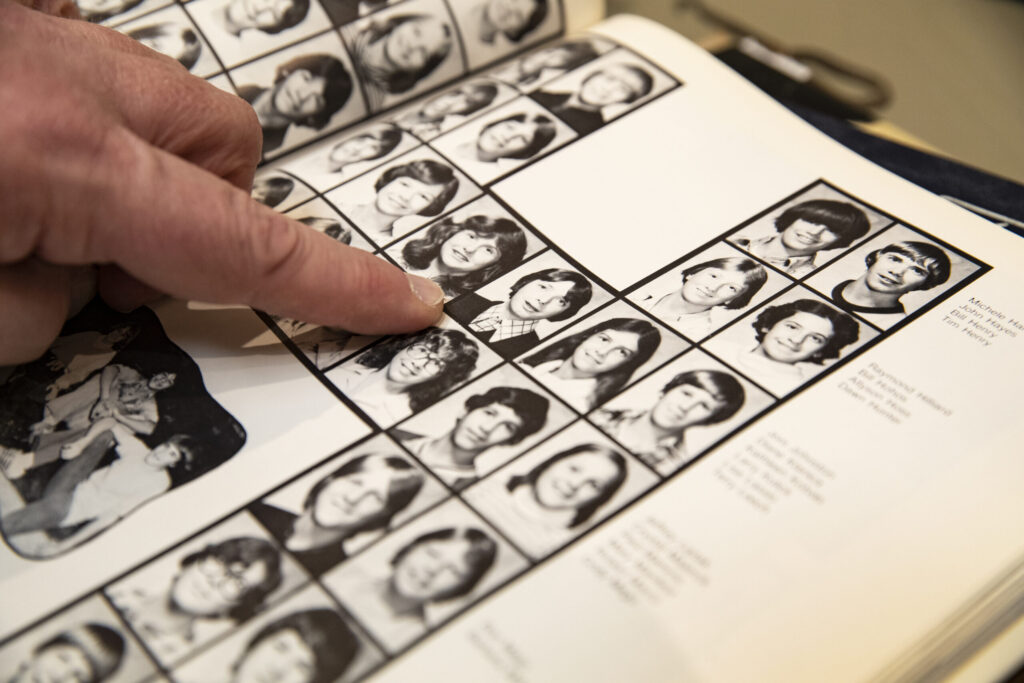
Bishop Kulick’s mother was born in the Coleman residence on Harrison Avenue, and his parents bought their family house on the same street, where they raised Bishop Kulick, his twin sisters Lisa Blake and Lori O’Shea, and his younger brother, Erik.
“We call her the ‘Queen of Harrison Avenue,’” the bishop said of his mother.
As was the case in many cities and towns in southwestern Pennsylvania, parishes were often identified with a specific ethnic group. The former St. Martha Parish, where the Kulick family were parishioners, was the “Slovak parish.”
Many names came up as he talked about Leechburg and its influences on his becoming a priest, but one that stands tall is the late Father Rudolph A. Halvonik, a Slovak immigrant who was pastor of St. Martha Parish.
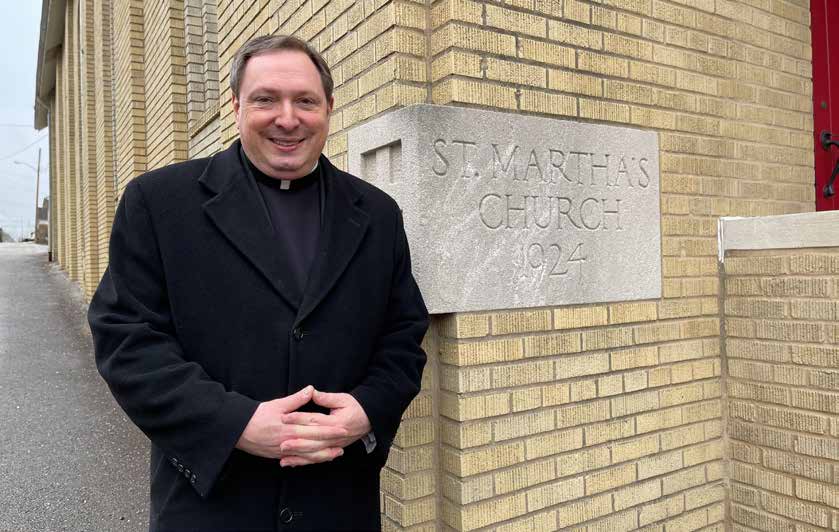
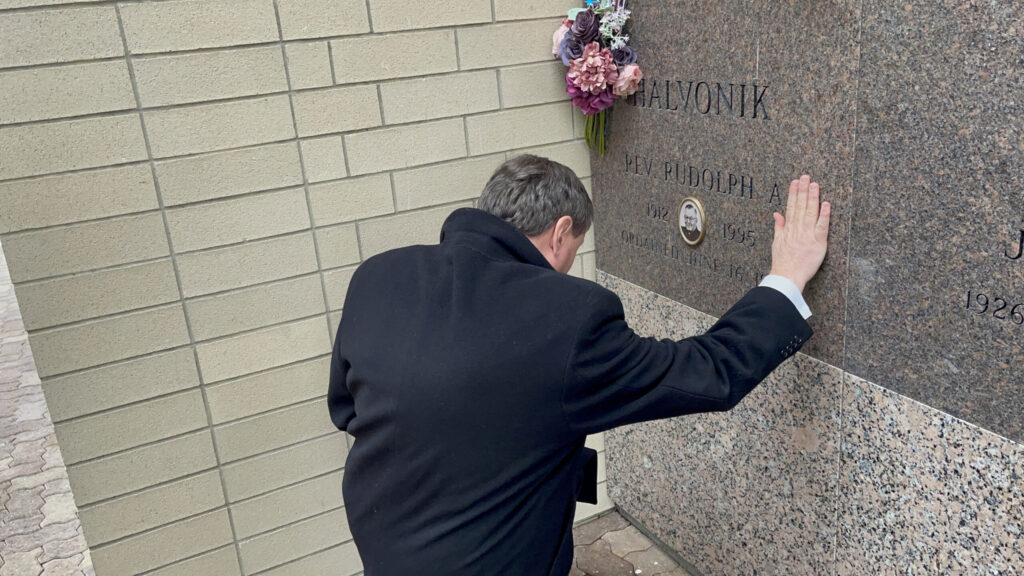
Bishop Kulick reflected on the people of the community and Father Halvonik on a visit to St. Catherine’s Cemetery in Gilpin Township, just outside of Leechburg.
He remembered being surrounded by the World War II generation in Leechburg.
“It was a great generation that worked hard, provided for their families, gave their children wonderful educations and really built up the community.”
He said the influence of those people, his neighbors, and the stories they would tell of sacrifice and personal difficulties and how they overcame them was important.
He stopped at the graves of his paternal grandparents, John and Anna Kulick; fellow parishioners Alex and Eva Kroll; and Father Halvonik.
He visits the gravesites often, he says, and finds a closeness in the importance of the deceased as part of the communion of saints and the importance of praying for them and asking for their intercessions.
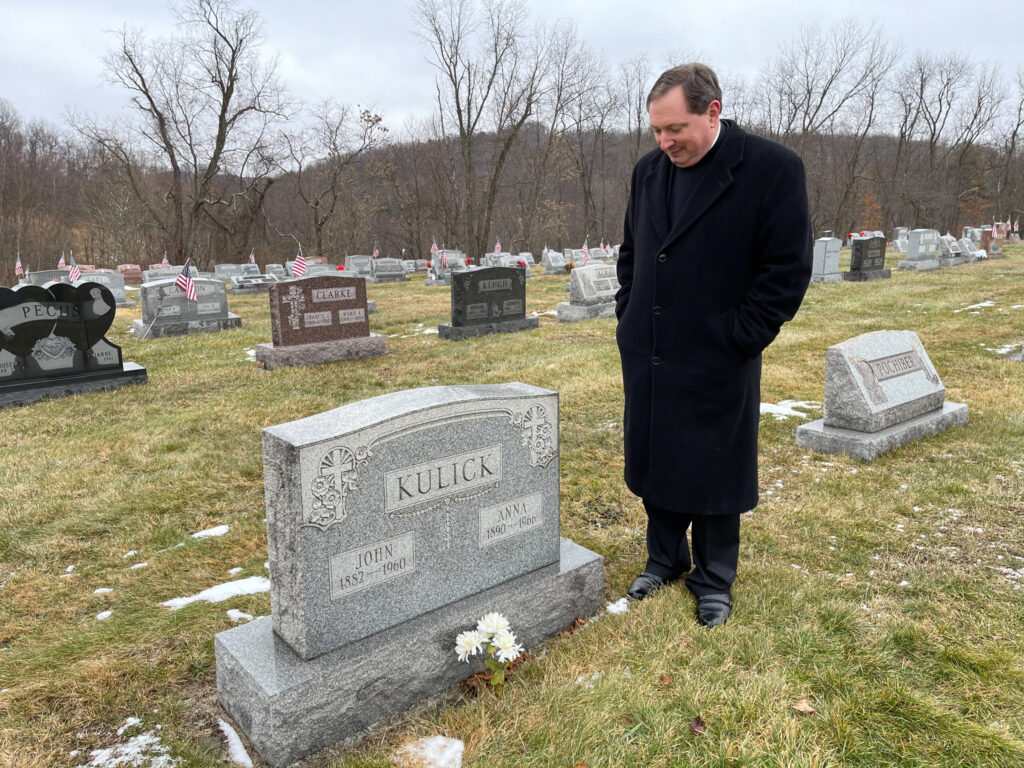
“One of the great influences in my life from a faith point of view was the larger community, the community of faith,” the bishop said.
His great-grandparents came to the U.S. at the turn of the 20th century from northwestern Slovakia, and John Kulick found work in the coal mines.
Father Halvonik came to the U.S. from that part of Slovakia as a young child and would serve as pastor of St. Martha Parish for 17 years. He died in 1995.
“I discerned the larger part of my vocation under his guidance,” Bishop Kulick said. “I received the sacraments from him. Father Halvonik was very disciplined and had a great love of the church and the priesthood.”
His vocation of priestly service was first nourished as an altar server for Father Halvonik.
The bishop has often talked about how he went to Father Halvonik the day after receiving his first Communion from the pastor to ask to be an altar server. Father Halvonik agreed and told him to be at the church for the 6:30 morning Mass every day for the next two weeks.
The story is, Bishop Kulick said, that Father Halvonik and his mother talked about the request and thought he would not get up that early every morning for two weeks.
But he persevered.
“Serving at the altar brought me great joy,” Bishop Kulick said at his episcopal Ordination Mass. “It fostered a wonderful prayer and devotional life. It placed me in many opportunities to see the important spiritual needs of people and the solace that they received in and through the church and her sacraments.
“And it taught me that discipleship was intrinsically tied to service.”
The Krolls were examples of the importance of the sacraments in people’s lives.
At his first morning Mass as an altar server, Bishop Kulick said Alex Kroll directed him to the sacristy. There, Father Halvonik instructed the boy to
“go out, watch me, and follow what I do and I’ll tell you what else to do.”
Bishop Kulick said he did as instructed, including kissing the altar as Father Halvonik did at the beginning of Mass.
“He looked at me and said, ‘You don’t have to do that,’” said the bishop, who still remembers that the first time he kissed the altar in reverence was not on the day of his first Mass as a priest, but on the day of his first Mass as a server.
A final local influence on his vocation was the four years he studied at St. Joseph High School in Natrona Heights; he graduated in 1984.
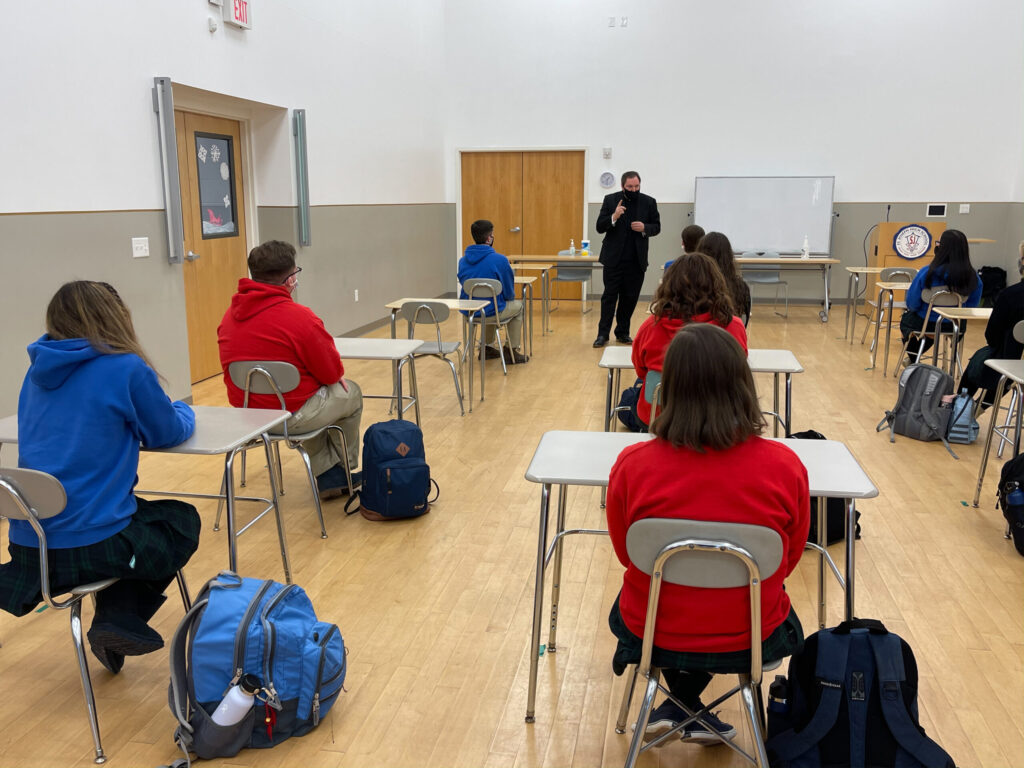
During the final stop on his daylong trip to Leechburg and the area, the bishop encouraged the students to foster a strong prayer life by spending quiet time in prayer, away from the distractions of electronic communication devices.
“St. Joseph High School was a very integral part of not only my discernment to the priesthood, but it was a supportive environment in my growing in the faith, loving the faith and loving the church,” he said.
- Tags:
RELATED STORIES
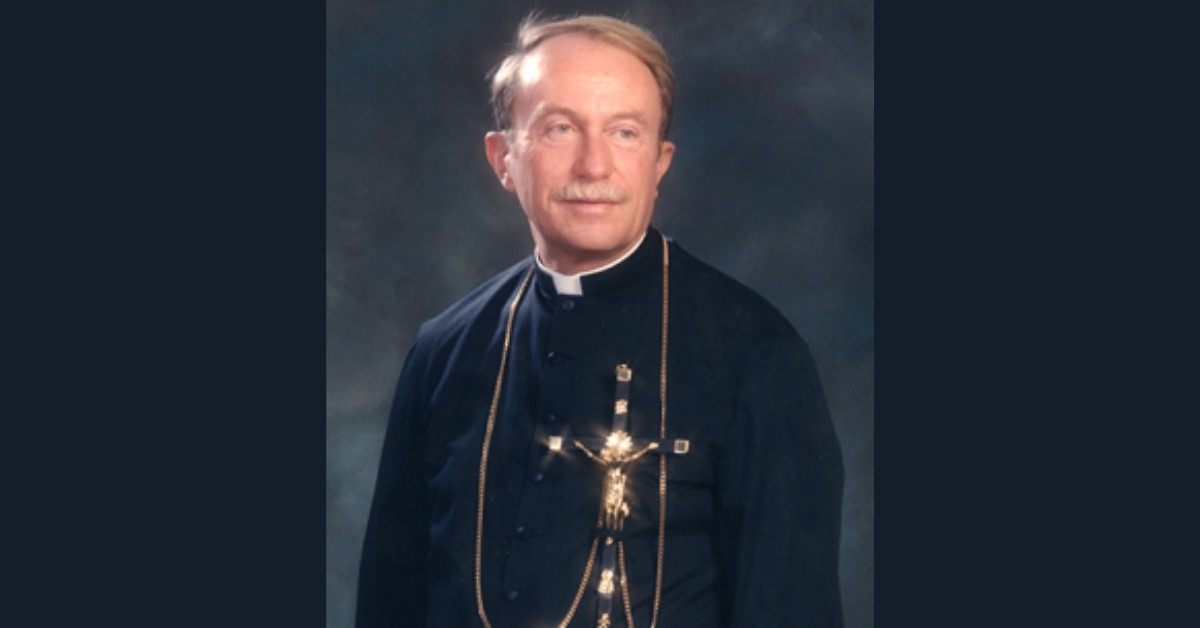
Rev. James M. Reposkey C.PP.S., 77, devoted 50 years to his service as Missionary of the Most Precious Blood, Atlantic Province
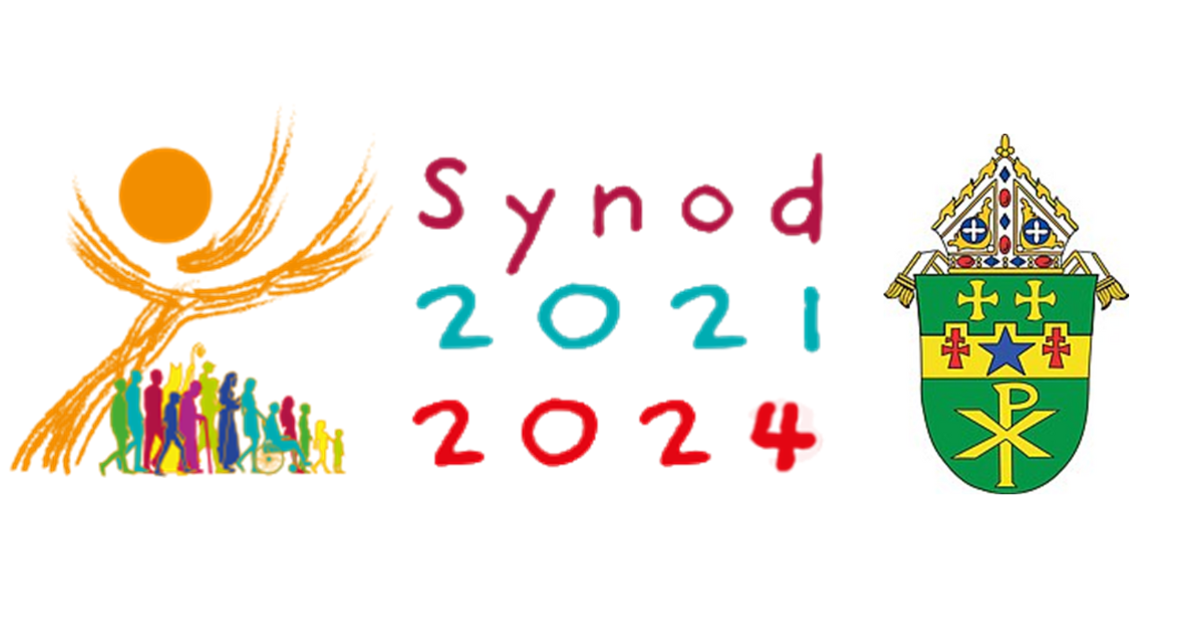
Diocese Submits Interim Synod Synthesis to USCCB
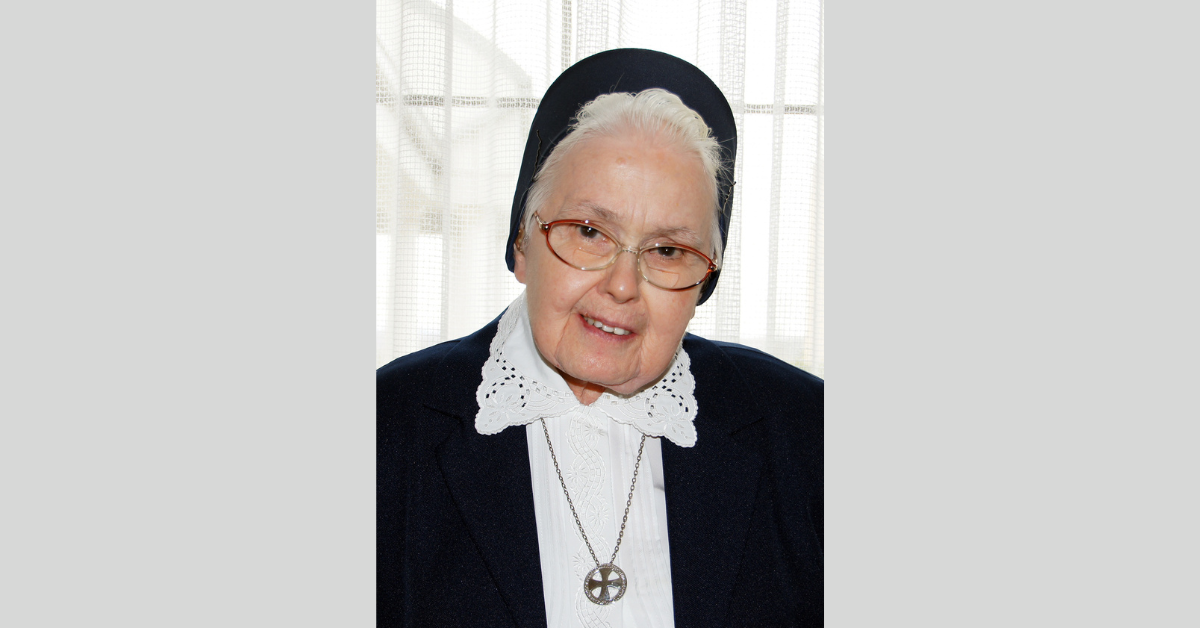
Sister Mary Thomas Rodgers, SC, age 99, entered eternal life on March 31, 2024, in her 80th year of religious life
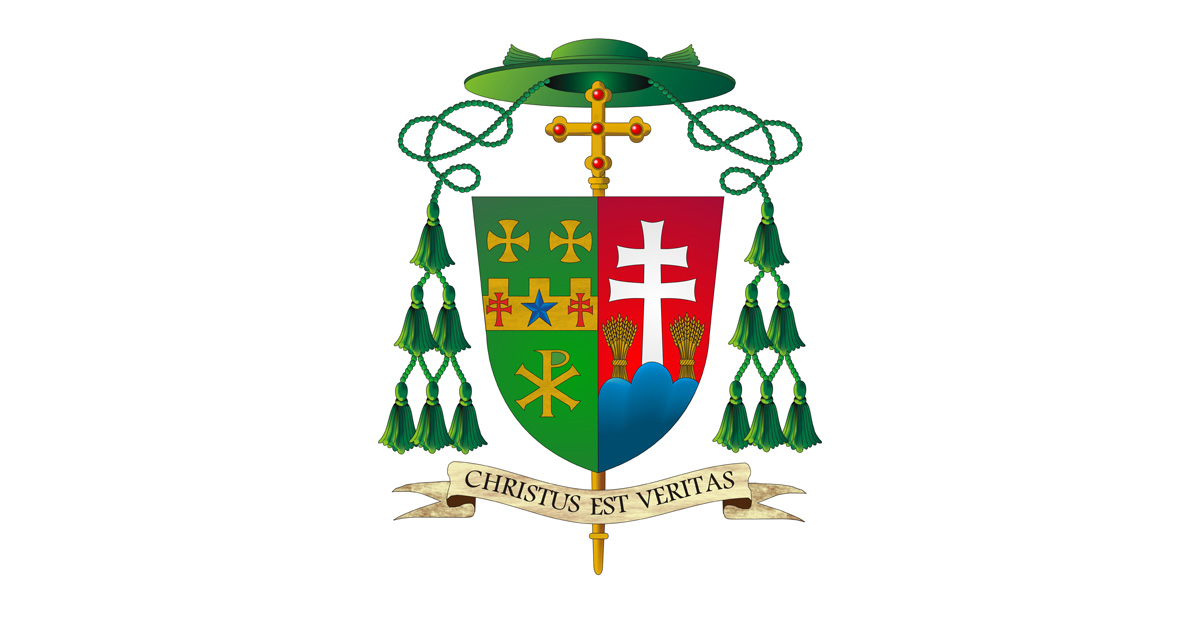
OFFICIAL - Effective March 26, 2024
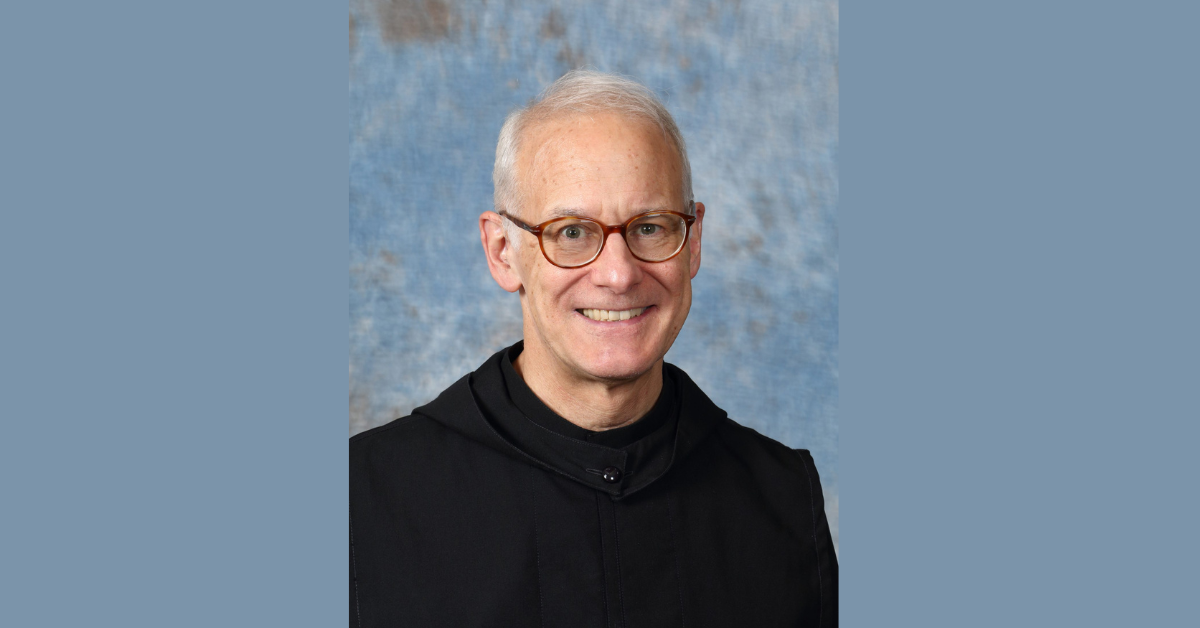
Father Nathan (James) Munsch, O.S.B., a monk of Saint Vincent Archabbey, age 72
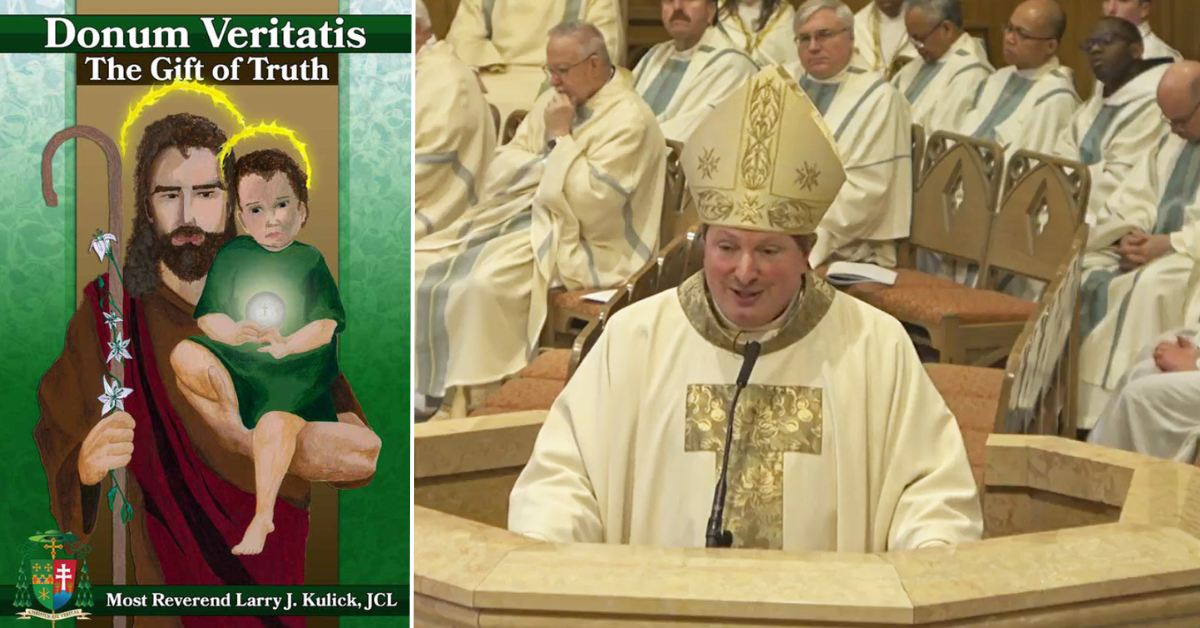
Bishop Kulick shares vision for Diocese in Pastoral Letter
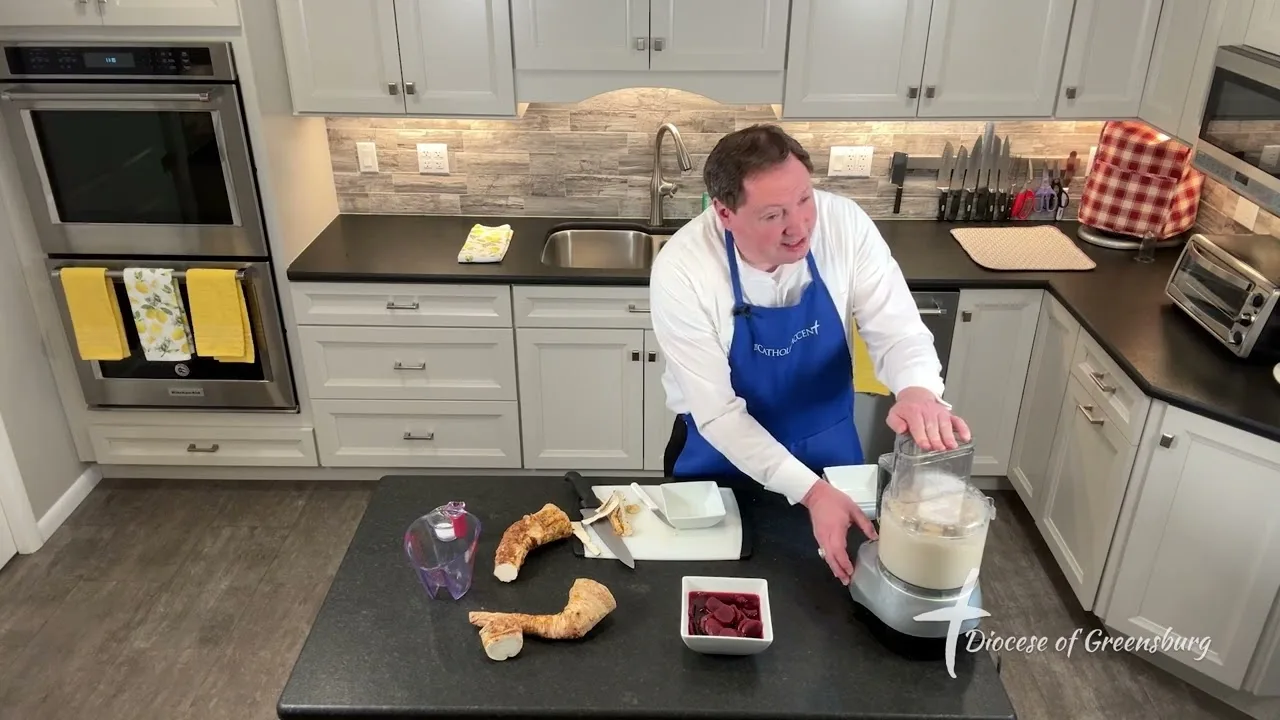
Bishop Kulick's Horseradish recipe
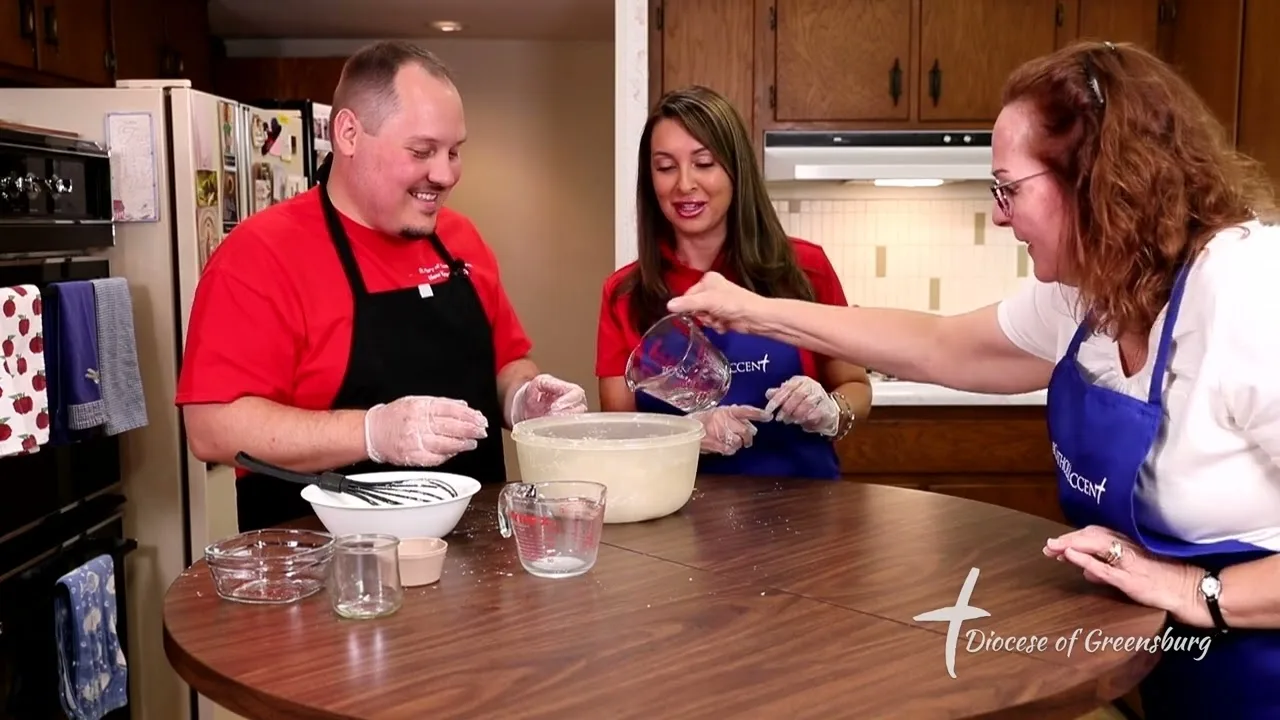
Fr. Dan Ulishney's Pierogi Recipe

Help for Heartache: Ukrainian Refugees Find Comfort in Greensburg
